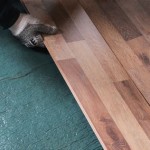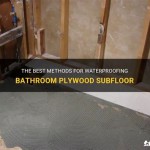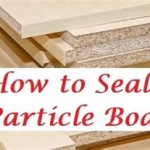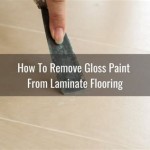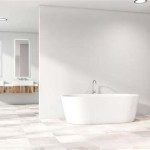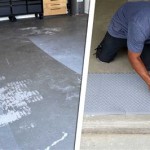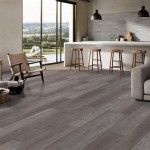Best Flooring Options for Basements Prone to Water Smell
Basements, often located below ground level, are inherently susceptible to moisture. This susceptibility can lead to a damp, musty smell, signaling potential water intrusion and the growth of mold and mildew. Choosing the appropriate flooring is critical in mitigating this issue and maintaining a healthy and comfortable basement environment. The ideal flooring material should be water-resistant, durable, and easy to clean, while also contributing to the overall aesthetic appeal of the space. This article explores several flooring options best suited for basements prone to water smells, examining their pros, cons, and suitability for different basement scenarios.
Understanding the Source of Water Smell in Basements
Before selecting a flooring material, it is essential to understand the underlying causes of water smells in basements. Common sources include hydrostatic pressure, which forces groundwater through the concrete slab and walls; condensation, which occurs when warm, humid air comes into contact with cool surfaces; leaking pipes or appliances; and improper drainage around the foundation. Addressing these sources is the first step toward preventing water damage and subsequent odors. Proper waterproofing measures, such as installing a sump pump, sealing cracks in the foundation, and improving ventilation, should be implemented before installing any new flooring.
Ignoring the root cause of the moisture problem and simply installing a water-resistant floor is a temporary fix at best. Mold and mildew can still grow beneath the flooring, leading to persistent odors and potential health problems. Therefore, a comprehensive approach that includes addressing moisture sources and selecting appropriate flooring is crucial for long-term success.
Top Flooring Choices for Water-Prone Basements
Several flooring options are particularly well-suited for basements susceptible to moisture. These materials offer varying degrees of water resistance, durability, and aesthetic appeal. The best choice will depend on the specific conditions of the basement, the homeowner’s budget, and their desired aesthetic.
1. Epoxy Flooring
Epoxy flooring is a highly durable and seamless option that creates a waterproof barrier over the concrete slab. It is resistant to stains, chemicals, and impacts, making it a practical choice for basements used as workshops, recreation rooms, or storage areas. Epoxy is applied as a liquid resin that hardens to form a solid, non-porous surface, preventing water from seeping into the concrete and causing mold growth. It can also be customized with various colors, patterns, and textures to enhance the aesthetic appeal of the basement.
The installation of epoxy flooring typically requires professional expertise to ensure proper surface preparation and application. The concrete slab must be thoroughly cleaned and etched to promote adhesion. Multiple coats of epoxy are then applied, allowing each coat to cure properly before applying the next. While the initial investment may be higher than other flooring options, the longevity and durability of epoxy flooring can make it a cost-effective choice in the long run.
One potential drawback of epoxy flooring is its hardness. It can be less comfortable to stand on for extended periods compared to softer flooring options like carpet or vinyl. However, this can be mitigated by using area rugs or padded mats in areas where comfort is a priority.
2. Luxury Vinyl Plank (LVP) and Luxury Vinyl Tile (LVT)
Luxury Vinyl Plank (LVP) and Luxury Vinyl Tile (LVT) are popular choices for basements due to their water resistance, durability, and realistic appearance. These materials are constructed from multiple layers of vinyl, including a wear layer that protects against scratches and stains, a decorative layer that mimics the look of natural wood or stone, and a backing layer that provides stability and cushioning.
LVP and LVT are available in a wide range of styles and colors, making it easy to find a design that complements the overall aesthetic of the basement. They are also relatively easy to install, with many products featuring a click-lock system that allows for a floating installation. This means that the flooring is not glued directly to the concrete slab, allowing for some degree of expansion and contraction without damaging the flooring.
While LVP and LVT are water-resistant, they are not entirely waterproof. If water is allowed to pool on the surface for an extended period, it can seep through the seams and potentially damage the subfloor. Therefore, it is important to clean up spills promptly and address any sources of water intrusion.
Furthermore, it is crucial to select high-quality LVP or LVT products that are specifically designed for basement use. These products typically have a thicker wear layer and a more robust backing layer to withstand the moisture and temperature fluctuations that are common in basements.
3. Ceramic and Porcelain Tile
Ceramic and porcelain tile are excellent choices for basements due to their inherent water resistance and durability. These materials are impervious to water, making them ideal for areas prone to moisture. They are also resistant to stains, scratches, and fading, ensuring that they will maintain their appearance for many years. Tile is also a very hygienic option as it doesn't harbor bacteria or mold spores.
Porcelain tile is denser and more water-resistant than ceramic tile, making it a better choice for basements that are frequently exposed to moisture. However, both materials are suitable for basement applications, provided that they are properly installed and sealed. Grout lines between the tiles should be sealed to prevent water from seeping into the subfloor.
Tile can be cold and hard underfoot, which can be a drawback in basements that are used as living spaces. However, this can be mitigated by installing radiant floor heating or using area rugs to provide warmth and comfort. Tile is also a very permanent flooring solution. Changing it is more labor intensive and expensive than other options.
The installation of tile requires specialized tools and skills, so it is typically best left to professionals. Proper surface preparation is essential to ensure that the tile adheres properly to the concrete slab. A waterproof membrane should also be installed beneath the tile to provide an extra layer of protection against moisture.
4. Engineered Wood Flooring
Engineered wood flooring is a viable option for basements that are not excessively prone to moisture. Unlike solid hardwood, engineered wood is constructed from multiple layers of wood veneer bonded together, making it more dimensionally stable and less susceptible to warping or cupping in response to moisture fluctuations.
However, engineered wood flooring is not completely waterproof. If it is exposed to standing water for an extended period, it can still be damaged. Therefore, it is important to address any sources of water intrusion before installing engineered wood flooring in a basement. A vapor barrier should also be installed beneath the flooring to protect it from moisture rising from the concrete slab.
Engineered wood flooring offers the aesthetic appeal of natural hardwood without the same level of risk associated with solid hardwood. It is available in a wide range of wood species, finishes, and plank sizes, allowing homeowners to create a customized look that complements their décor.
It's important to note, this option is only suitable for basements with humidity reliably controlled. Even if not visibly wet, prolonged high humidity levels will cause issues with engineered wood flooring.
Flooring Options to Avoid in Basements Prone to Water Smell
Certain flooring materials are not well-suited for basements that are prone to moisture and water smells. These materials can absorb water, promote mold growth, and deteriorate over time, leading to costly repairs and potential health problems.
1. Solid Hardwood Flooring
Solid hardwood flooring is highly susceptible to moisture damage, making it a poor choice for basements. It can warp, cup, and swell when exposed to water, rendering it unusable. Mold and mildew can also grow beneath the flooring, creating an unhealthy environment.
2. Carpet
Carpet is another flooring material to avoid in basements prone to moisture. It readily absorbs water and provides a breeding ground for mold and mildew. Even with regular cleaning, it can be difficult to remove moisture and odors from carpet, leading to persistent water smells.
3. Laminate Flooring
While some laminate flooring products are advertised as water-resistant, they are not entirely waterproof. Water can seep through the seams and damage the fiberboard core, causing the flooring to swell and warp. Laminate flooring is also prone to mold growth in damp environments.
Preparing the Basement Floor for New Flooring
Proper preparation of the basement floor is essential for a successful flooring installation. The concrete slab should be thoroughly cleaned and inspected for cracks or imperfections. Any cracks should be filled with a concrete patching compound to create a smooth and level surface.
A moisture test should be conducted to determine the level of moisture in the concrete slab. This can be done using a calcium chloride test or a relative humidity probe. If the moisture level is too high, a moisture barrier should be installed to prevent water from wicking up into the flooring.
The concrete slab should also be leveled to ensure that the flooring is installed on a flat surface. This can be done using a self-leveling compound. The surface must be clean and free of debris before pouring the self-leveling compound.
Ensuring proper ventilation is vital. Consider installing a dehumidifier to further control the moisture levels in your basement, no matter which flooring option you choose.

Thermaldry Basement Flooring Systems Waterproof

Guide To Waterproof Basement Flooring Quality Installs Inc

Best Flooring For A Wet Basement Family Room The Money Pit

8 Popular Stylish Flooring Options For Your Basement

The 10 Best Basement Flooring Options Girl

6 Of The Best Flooring Options For Basements Colorado

9 Best Flooring For Basement Pros And Cons

Should I Use For My Basement Floor
/24876%20288th%20Tr-9.jpg?strip=all)
What Is The Best Basement Flooring Material Compelling Homes

Vinyl Plank Floors Moisture In Basement
See Also
